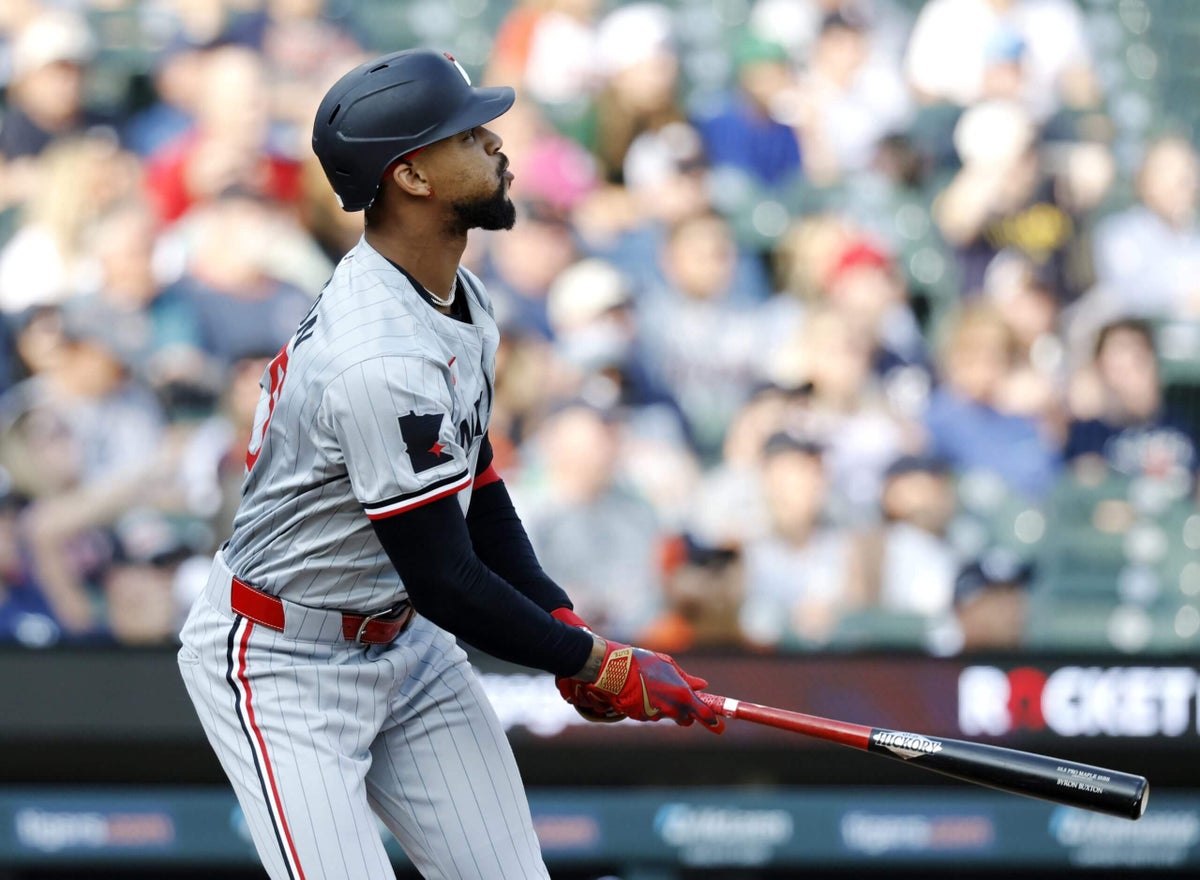ATLANTA — A few days before he stepped to the plate for Monday’s Home Run Derby, Minnesota Twins All-Star Byron Buxton got two hits in a win over the Pittsburgh Pirates. But that wasn’t enough for a gambler who watched him best Paul Skenes.
Buxton’s 2-for-4 night didn’t feature an extra-base hit — and a home run was what the interested party who reached out to the 31-year-old center fielder needed to win a bet.
The All-Star said he “could care less” about others gambling on his performance in games because, “‘I’m not your dad. I’ve got my own family to take care of and it’s not my decision for me to go out and hit a home run because you made a bet,’” he said on Monday. “That ain’t how baseball works. It’s harder than that.”
Buxton, who was among players at Monday’s All-Star Game media availability that The Athletic asked about the effects of gambling, was drafted in 2012 and has been on the receiving end of fan vitriol since debuting in the majors a decade ago. But there’s no hiding that the recent larger-scale legalization of sports betting operations and the partnerships with MLB that followed have had adverse ramifications on baseball.
Less than two weeks ago, Cleveland Guardians starting pitcher Luis Ortiz was placed on “non-disciplinary paid leave” so the league could investigate whether he pre-determined the outcome of two pitches he threw in June.
In the eyes of Detroit Tigers starting pitcher Casey Mize, the proliferation of gambling-related content in venues doesn’t help matters.
“There’s some gray area when they’re showing betting odds pregame, or even during the game, or when you can bet on the over/under of how many pitches you’re throwing in the inning while I’m warming up to throw,” he said at a theater across from Atlanta’s Truist Park. “It’s tough.”
He fears that the positioning of certain advertisements is a problem.
“They surround us so much with so many advertisements, so many opportunities,” he said. “It’s just too close to us and too accessible. It makes me fearful for some guys that might get confused or accidentally click a button or whatever without even meaning to.”
In the first half of this season, two major league pitchers — Boston’s Liam Hendriks and Houston’s Lance McCullers Jr. — received anonymous death threats on social media and denounced them. When approached for an anonymous poll during spring training, many players said their direct messages on social media often feature requests for reimbursements for lost bets
Players aren’t solely worried now for the safety of themselves and their loved ones, but also about the possibility that some might purposefully alter their work on the field because of betting activities tied to them.
Some All-Stars suggested the Ortiz incident might just be a one-off.
San Francisco Giants starter Robbie Ray said, “It’s not the norm. It’s not the everyday actions of players, so I don’t see it as an issue.”
Brandon Lowe of the Tampa Bay Rays echoed him: “I think no matter where you are there’s gonna be one person that does things the wrong way and 99 percent that do it the right way.”
Even youngster Jacob Misiorowski, who’s penciled in to pitch in for the fifth inning of Tuesday’s game, despite having made his MLB debut on June 12, said there’s no concern in the Milwaukee Brewers’ clubhouse that players will allow themselves to be influenced by betting operations.
“If you’re at that level,” he said of those hypothetical players, “you have a different problem.”
Others, however, are worried that so-called “fans” are taking things a step too far. For them, combating such overreach is as easy as putting up blinders.
“We kind of try and block it out and put filters up so we don’t have to look at the hate,” said Alex Bregman, Hendriks’ teammate.
“You just really try not to look at social media stuff or anything and stay focused on who you are as a player,” Athletics rookie Jacob Wilson said.
New York Yankees starter Carlos Rodón, who has noticed that spectators more than ever shout to him things like, “Hey, Carlos, I got you at 5 1/2 over strikeouts,” considers death threats to be part and parcel of jobs in professional sports.
“We’ll be fine,” he said. “We’re big boys.”
But catcher Hunter Goodman of the Colorado Rockies doesn’t think the norm is acceptable.
“I think people should be more aware of it,” he said. “At the end of the day, we’re people. We have lives outside of baseball. This is just our job.”
— The Athletic’s Cody Stavenhagen contributed to this report.
(Photo of Byron Buxton hitting: Duane Burleson / Getty Images)

